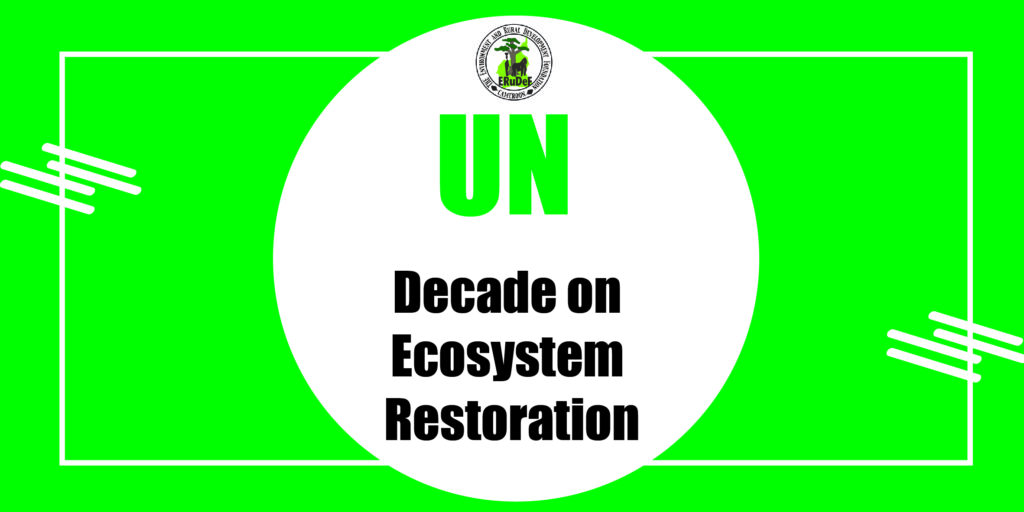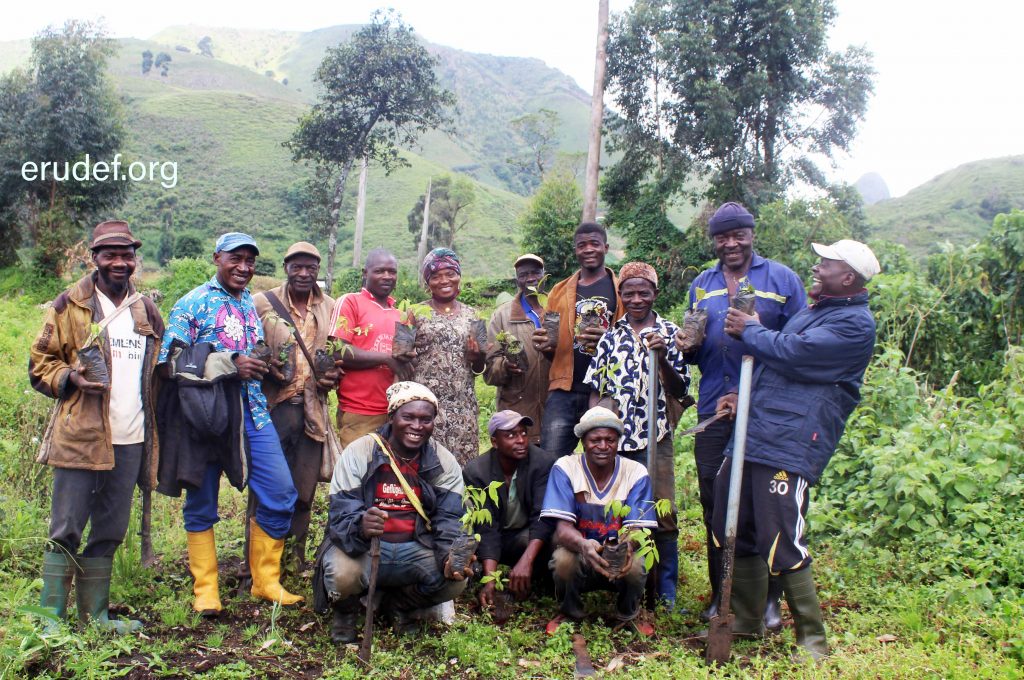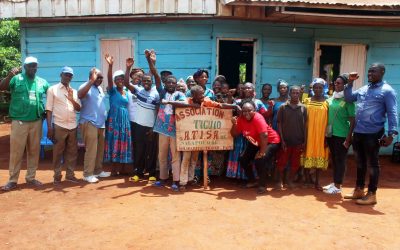Wendell Berry, a naturalist and writer once said, “the earth is the only thing we have in common”, so why would we want to destroy the only thing which bonds the human race? Our world was created naturally with so much riches, with enough for both humans and species to live on. Due to anthropogenic activities, our world is quickly crumbling with many species quitting the stage, and going into extinction. Nevertheless, with such calamity befalling the only thing we have in common; all hope has not been lost. Mother earth still remains the only place where humanity and indeed plants and animal can find refuge.

This decade has been termed as the UN decade on ecosystem restoration. Like many have put it, there has never been a more urgent need to revive damaged ecosystems than now. It is now or never. The UN decade on ecosystem restoration calls on all government and indeed everyone to prevent, halt and reverse degradation of areas such as grasslands, forest, oceans and mountains, essential for the survival of human beings on earth. The ball has been set rolling with the launch of this campaign in June 2021. The UN Secretary-General António Guterres is quoted as saying; “We are ravaging the very ecosystems that underpin our societies, and in doing so, we risk depriving ourselves of the food, water and resources we need to survive.”. Where did mother earth go wrong but for her patience with the destructive actions of human beings?
It would be needless to start pointing out the tones of effects accompanying our wanton destruction of Mother Earth’s capital. The Coronavirus virus pandemic is a glaring example of the toxic relationship we have developed and nurtured with mother earth. If the present status quo is maintained, we can only expect the worst to happen, God forbid!
Cameroon has had its own fair share of the effects of the global problem of consistent biodiversity loss and the destruction of the very fabric that holds the earth together. Desertification is engulfing the Northern part of Cameroon, species are going into local extinction and land degradation is now a reality like never before in Cameroon. To add to the unending list of these effects, floods are very rampant in cities like Douala and Limbe. All these re-echoe the calls that we need to collectively restore the earth before it becomes inhabitable again.
Cameroon is committed to restoring 12 million hectares of deforested and degraded land by 2030 as part of the Bonn Challenge. This together with local and other international commitments such as the Paris Climate Agreement assure us that there is a will and indeed there is hope. While we do agree that where there is a will there is a way, action on the ground needs to be stepped up and more importantly, environmental non-governmental organizations and the Cameroon state functionary need to act together like never before.
The Environment and Rural Development Foundation (ERuDeF), has been working to protect forests and flagship species of plant and animals for more than 20 years. ERuDeF works with the government, companies, communities and other stakeholders to promote certification for responsible forest management practices: combat illegal logging, reform trade policies, protect forested areas, and more. In this light, our main priority in ecosystem restoration is to plant 300 million trees in 15 years, to restore degraded lands in both Cameroon and the Central Africa Sub-region. We launched this commitment as our own litle way of contributing to the global narrative of ecosystem restoration.
In August 2018, we launched one of our flagship projects, the Mount Bamboutos Initiative to restore 35,000 hectares of the degraded Mount Bamboutos ecosystem with the planting of 15 million trees in 15 years, piloting till 2021

Babadjou locals pose for a picture after planting trees on Mount Bamboutos
As the 3-year pilot phase of the Mount Bamboutos Initiative (MBI) project, supported by TreeSisters and Darwin Initiative drew to an end on March, 31 2021, ERuDeF was able to secure new funding from the German based organization, ECOSIA SA, in order to continue to support the goals and objectives of the initiative
This project which will run for an initial one year was launched in February 2021.The project titled “Restoring the biodiversity and ecosystem functions of the degraded Mount Bamboutos Landscape” will protect and restore over 1500 hectares of degraded riparian forests, sacred forests and water catchments by planting 700,000 native and agroforestry trees. The project is implemented in some selected chiefdoms namely: Bafou, Bangang and Babadjou in the West region, Bamumbu in the Southwest region and Menka in the Northwest region of Cameroon.
ERuDeF has also been in the forefront in protecting bird species. “Birds connect our world” pronounced last year’s migratory bird day theme. This theme shows us how interconnected our world is and the 2021 migratory bird day and on April 09 2021, ERuDeF Celebrated the World Migratory Bird Day under theme “Sing, Fly, Soar – Like a bird!” tells us how glamorous the earth is.
The Environment and Rural Development Foundation (ERuDeF), remains resolute in conserving, restoring and connecting the integrity of ecosystems that support the movement of migratory birds, which face many difficulties as they connect the world. ERuDeF honors these beautiful winged creatures, and also raises awareness on the need for international cooperation to conserve them. Migratory birds undertake regular seasonal movement often north and south along flyway between breeding and wintering grounds. Today, migratory birds still face serious threat, from loss of habitat, climate change, poisoning, power lines, illegal hunting, pollution and natural disasters. ERuDeF therefore used the opportunity for world migratory bird’s day celebration, to call on each and every individual to step up actions and adopt sustainable natural use methods to better protect migratory birds and the habitats they need to survive and thrive. On May 21, 2021 ERuDeF also observed the world Endangered Species Day in order to recognize the national conservation efforts to protect our nation’s endangered species and their habitats.
In Eastern Cameroon, ERuDeF is currently working on the Deng -Dja Conservation Corridor Project, to save western lowland gorillas and many other IUCN Red List Species. We continue to make advances in marine and mangrove conservation, ecosystem restoration, agroecology restoration as well as amphibians and great apes conservation. In the Lebialem Highlands, ERuDeF is also working to save IUCN Red List Species, such as the Gross River Gorilla, the Nigeria-Cameroon Chimpanzee which are critically endangered.
ERuDeF looks forward to spreading its tentacles to other countries in order to ensure the earth is connected and safe. It is our collective responsibility to save our biodiversity habitats, and secure the ecosystem’s future for the people who depend on it.


